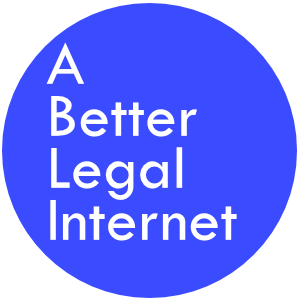This report is from our student group in the Spring 2023 class 806y, Justice By Design. American Bar Association’sFree Legal Answers: User Experiences and Recommendations by Sonya Googins, Justin Iannacone, Kelsea Jeon, Shannon Lee, Ana Ribadeneira, Kevin Wang, June 9, 2023 Table of Contents Introduction Overview: User Experience with FLA Touchpoint: Arriving on the Home Page Updated Home Page Cover Image and …
Journalists’ Trust Project as parallel for legal domain
A group of journalists and news publications have established an initiative, called the Trust Project, to establish standards about what makes for a ‘good’ website for news. This initiative offers a parallel to how justice system professionals might establish common indicators for what makes a ‘good’ website for legal help information. The Trust Project has established 8 indicators that go …
Website Design & Discovery review for Virginia Eviction Legal Helpline
How can legal help websites perform better for the public? This design review & tech strategy report on the Virginia Eviction Legal Helpline walks through specific strategies a legal aid team can implement.
Leveraging Search Engines to Improve the Visibility of Court Information Online
By Brian Guayante of The Turnout In the past decade, an average of around twelve million civil cases per year were filed in state courts in the United States. Many of the individuals involved in civil cases, such as eviction proceedings, do not regularly interact with the justice system and are unaware of the resources available to them. Parties responding …
Legal Help Searches in the Your Money or Your Life (YMYL) framework
Google Search has training guidelines for people who evaluate legal help websites and results. These are called Search Quality Evaluator Guidelines. And one of the central principles they teach people rating websites is YMYL, or Your Money or Your Life. Concerns and sites that concern high-YMYL matters. YMYL is framed around financial stability, health, safety, and welfare. Here is a …
Data on people’s reliance on the Internet for legal problems
This recent study profiles how people use the Internet to find help & get legal information.
Government sites aren’t always .gov sites
Election government websites often aren’t .gov websites. Many of them have TLD (top-level domains) that are .coms, .orgs, or other domains. That means a search engine, social media platform, or other ‘broker’ of online information can’t automatically just send people to a government site. It’s hard to easily sort authoritative information from low-quality information. See this report from the @Georgetown …
National legal help sites from the government
One of the problems with legal help online is the lack of national nonprofits that offer legal help. Legal aid in the US is very local, with county or state legal aid groups providing information and services to people. And most legal help websites have been created at the state level, to provide that state’s legal info. The issue is …
Legal Help (and Harms) on Social Media
Our team is starting to do preliminary explorations of how we may audit social media platforms like TikTok, Instagram, and YouTube to see how legal help is (or could be) delivered on them. Based on our research assistant Carolina Nazario’s work, here are two themes for research and design that we’re exploring: Area 1: Spotting Legal Influencer & Public Interest …
Data-Driven Legal Help
Digital Legal Needs analysis of an online legal clinic to predict seasonal trends in people’s legal needs by Nóra Al Haider and Margaret Hagan, originally published on Legal Design and Innovation Stanford Legal Design Lab collaborated with the American Bar Association to analyze ABA Free Legal Answers. Free Legal Answers is an online legal clinic through which low-income individuals get answers to civil …
